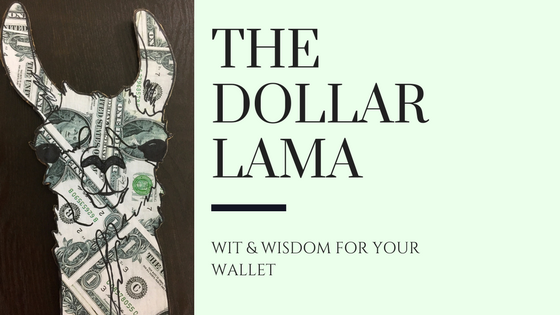A long time ago, in a galaxy far, far away, I graduated from law school and wound up with whopping $47,000 in student loan debt. The common belief is lawyers have no problem earning a really great living practically the month after they get their law degrees. Well, let me tell you the cold, hard truth. That, my friend, is “Pure T” baloney. Not only did I NOT begin earning $100,000 right out of law school, I was actually the only licensed attorney waiting tables at the closest Outback Steakhouse I could find. Yep, good times.
For More In Depth Information
If you want to more personal finance tips and strategies, including 5 Student Loan Debt Payment Tips, enter your information and click on "Learn More!"
Check your email for FREE gift details!
Thus began the long, slow trudge of shoveling myself out of a mountain of student loan debt. Avoiding cable television and eating cheese burritos to save a buck during those early years of earning a measly $32,000 a year. (Yes, you read that right.) If you’ve been following my content at all, you know that it took me twenty-one years after disbursement (eighteen years after I graduated), to pay off my student loan debt. This was long before there was such a thing as federal student loan forgiveness so I paid every penny of the $29,000 in interest that accrued on that debt.
Back then, I only had a couple of options for any kind of help with my student loan debt. First, I could ask for a deferment or forbearance, if absolutely necessary. Second, I could ask to have my loan placed in an extended repayment plan that would increase my payment over time, as I earned more money. So, I consolidated my loans, applied for the extended payment plan and avoided forbearance with all my might.
I’m proud to say that sticking to my guns paid off. I never once missed a payment and managed to beat the thirty year repayment period by 9 years, saving myself a boatload of interest. I don’t mind telling you that in the beginning, it was very, very tight. Now things are a lot different. You can’t just do what I did, set it and forget it. The truth is, student loan debt is so much more complicated now and what you don’t know could really hurt you financially.
Let’s see if this sounds familiar. Jane Doe graduates from high school and that fall, she goes and gets a Bachelor’s Degree in Communications from her local state university. She does all the things she thinks a smart person should do. She keeps her spending down and lives on campus without a car. This way she can devote all her time to studying and getting the best possible grades.
Even though she had some help from her parents and summer jobs, she still winds up with $20,000 in student loans after graduation. These loans come into repayment six months after she graduates and six months before she finds an entry level job in the mailroom at ABC Widget Corporation making $36,000 a year.
Since it took her twelve months to find a job, she couldn’t make her loan payment. So, she called her servicer right away and applied for a forbearance on their advice. What a relief that she had another six months reprieve from paying that bill! Little did she know that interest started accumulating when the loan was disbursed (her parents made too much money for her to qualify for a subsidized loan), and interest continued to accrue while she was in forbearance.
Jane is finally at a point she can begin making her loan payment. She checks with her servicer and finds out her loan amount is now $21,168 because of all the accrued and capitalized interest. That’s not too bad, she thinks. She starts trying to make her $225 monthly payment (she’s in a standard 10 year repayment plan). It doesn’t take long for Jane to default because she just can’t pay the rent and her student loan payment. Ten years and a consolidation, a refinance into a private loan and a bankruptcy later, Jane now owes $85,000 (her original balance plus capitalized interest and collection fees), on her student loans. To top it off, her credit is shot.
Or, let’s make it like a “choose your own adventure” type scenario. Let’s pretend that Jane’s servicer eventually told her to apply for an Income Driven Repayment plan to get her payment down to a manageable monthly amount. Because Jane’s payment is based on her income, she’s only paying $13.00 a month on her student loans. While she isn’t making any headway on her principal (or even her monthly accrued interest which continues to mount), at least she can pay the rent and survive every month, right? Whew, that was a close one for Jane.
Yes, for the twenty long years she’s in her income driven repayment plan she can survive. However, she eventually starts making more money, which drives her payment up to $225 she was paying on the 10 year standard repayment plan. Every year she has to recertify her income and family size meaning her payment goes up and up over the 20 years she’s in the Income Driven Repayment Plan. She’s also making additional payments to pay her principal down as quickly as possible because there is no penalty for early repayment, YAY!!
What she doesn’t know is that her increased payment (and her “little something extra” every month), is paying down her interest first, not her principal. At the end of twenty years, Jane has paid her original loan amount and twice the total amount in interest she would have paid in the 10 year standard repayment plan since no one told her she needed to tell her servicer (very specifically), to apply the extra payment to her principal.
Then, of course, there is the scenario that Jane is never really able to earn a good wage. She trudges along, year after year, making the minimum payment on her student loans. Hoping she’ll qualify for forgiveness of the balance and accrued interest, some day. Maybe she does and maybe she doesn’t. We still have nine years to go on the twenty year repayment periods on the first round of Income Driven Repayment plans. If these are treated anything like the Public Service Loan Forgiveness applicants (99% were denied due to things like paperwork errors), or the TEACH grant recipients (surprise, grants were turned into loans for 22,000 recipients because of paperwork errors). Jane could be in trouble!
Do you see my point? While Income Driven Repayment plans can be a mind-numbing trap, they can also be a huge help for people who are out there just starting off with a mountain of debt and an entry level job that barely pays the rent. The key is, you have to KNOW what your options are in order to be able to CHOOSE one and MANAGE it correctly. If you don’t know your options, you could end up on the wrong end of a ballooning balance. Or worse, your tax refund and Social Security payments could be offset (garnished), to pay off your student loan debt.
It’s time to get in front of this eight ball and take charge of your student loan debt. That’s the only way I see to save yourself money and avoid one of the three Jane Doe disaster scenarios. The good news is, I’ve done the hard work for you. If you are ready to learn how to do that, check out my Student Loan Debt 101 webinar to get your student loans on track and keep them there. Until you do, you won’t know what you don’t know.
See you later, alligator!
Joy Alford-Brand
The Dollar Lama
P.S. Learn more about beating student loan debt by clicking here. Make sure you check out my online courses, books and resources, too! Investing in your money management education is an investment in yourself. That’s the best investment you’ll ever make, I guarantee it! Don’t forget my weekly Facebook live videos on Facebook.com/newcashview, Instagram @joyalfordbrand and on my YouTube channel NCVTV. You can catch me twice, on Mondays between 3:00 p.m. and 4:00 p.m. for my Monday Money Management Minute and Thursday evenings between 7:00 and 9:00 (Eastern Standard time), for my weekly NCVTV episode. They are packed full of useful and entertaining money management information! If you’ve missed any NCVTV episodes, you can see the latest on newcashview.com or you can check out my YouTube channel and get caught up! You can get there by clicking here. Remember, like and share the NCVTV videos on Facebook and all your social media platforms, so others can benefit from them, too!
#studentloans #studentloandebt #newcashview

GET INSTANT ACCESS
Download your FREE gift!
To learn 5 Student Loan Debt Payment Tips, enter your info and click on download.
Check your email for FREE gift download!

